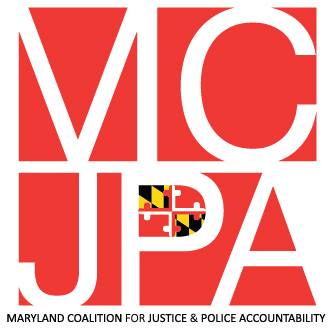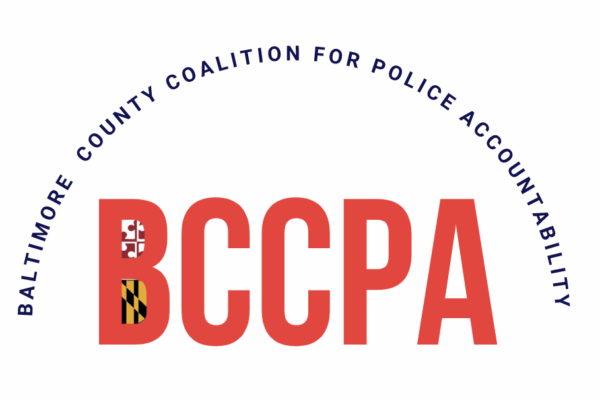ANNAPOLIS, MD – Sounding the alarm over rushed regulations proposed by the Maryland Police Training and Standards Commission (MPTSC), the Maryland Coalition for Justice and Police Accountability is deeply concerned that draft proposals are offensive to the letter and spirit of the Maryland Police Accountability Act (MPAA) of 2021. The MPTSC’s Emergency Regulations are for statewide implementation of Police Accountability Boards (PAB) and Administrative Charging Committees (ACC), and they would significantly undermine the ability of residents to advocate for a PAB and ACC that will reflect their communities and be accountable to them.
Maryland needs strong police oversight. In 2021, the Maryland General Assembly responded to community concerns by passing a bill to repeal the Law Enforcement Officers Bill of Rights and establish a new police disciplinary process that will include community members in the process and be more accountable to the people. Part of this bill required counties to create Police Accountability Boards and Administrative Charging Committees, so that community members can actively participate in overseeing police misconduct. The Maryland Police Accountability Act gives the "local governing body" of each county the power to "establish the membership of a police accountability board." This decision by the General Assembly recognizes the importance of allowing local communities to determine their own membership criteria and requirements through their elected officials. Furthermore, the regulations impose broad confidentiality requirements on members of both boards that are both unnecessary and go well beyond the scope of the enabling legislation.
However, the Maryland Police Training and Standards Commission has proposed emergency regulations to promote restrictions on who can participate on a board, how much they can hold police accountable, and what information they can share publicly.
To make matters worse, the Commission is moving the harmful regulations through an "emergency" process – meaning the public will not get a chance to provide comments. It is critical that the Joint Committee on Administrative, Executive, & Legislative Review (AELR), which is tasked with approving the regulations, carefully considers the regulations with community input before they are approved.
MCJPA is calling on the AELR to:
- Call for an emergency public hearing so community members can give their critical thoughts and feedback before anything is approved.
- Strike all the PAB and ACC regulations and leave it to the local jurisdictions to decide the membership requirements.
Specifically, MCJPA is calling for the implementation of the following revisions to the Emergency Regulations:
- Remove language around:
- PAB eligibility and membership requirements
- ACC eligibility and membership criteria
- It is particularly concerning to include limitations based on criminal history and immigration status, since the PAB and ACC are designed to be representative of the full diversity of the community, including those most targeted by police.
- PAB and ACC confidentiality requirements
- ACC member self-reporting requirements
- ACC removal requirements
- Prohibition on ACC charging power where discipline was already imposed
- Include internal deadlines to ensure that information from law enforcement agencies is transmitted to the boards in a timely manner.
- Fully include the ACC’s powers, as specified in the Maryland Police Accountability Act of 2021.
- Include clearer language around the Complainant Mediation Program.
If no changes are made to these regulations, the PAB and ACC will fail to live up to the promise of the Maryland Police Accountability Act of 2021.
The Maryland Coalition for Justice & Police Accountability (MCJPA) is a large, diverse, statewide coalition of 100+ organizations united to demand police reforms grounded in community control and accountability.
Documents
Related Content

Coalition Sounds Alarm As PAB Bills Undermine Accountability to Communities Across State

Baltimore County Coalition for Police Accountability Sends Open Letter Calling on County Council to Postpone PAB Vote, Accept Coalition Amendments to Bill 24-22
Stay Informed
Sign up to be the first to hear about how to take action.
By completing this form, I agree to receive occasional emails per the terms of the ACLU’s privacy statement.
By completing this form, I agree to receive occasional emails per the terms of the ACLU’s privacy statement.
